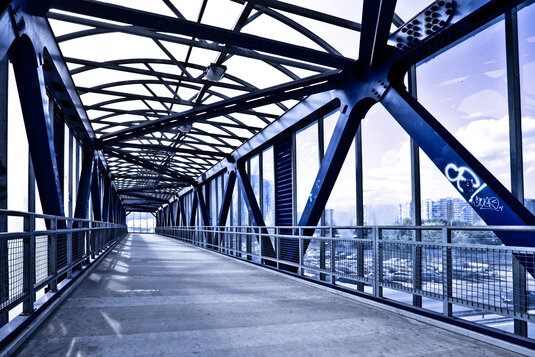Many years of experience at DVS ZERT
The certification of factory production control according to DIN EN 1090-1 is aimed at manufacturers or distributors of load-bearing components made of steel and aluminium.
Since 01.07.2014, the European Construction Products Regulation in conjunction with the harmonised standard DIN EN 1090-1 has required these construction products to be placed on the European market with CE marking. The certificate according to EN 1090-1 is the prerequisite for the CE marking of your steel and aluminium components.
our advantages at a glance
- With DVS ZERT, you have a partner with many years of experience at your side.
- Your EN 1090 certificate can be viewed in the publicly accessible online register www.en1090.net.
- Your products are freely tradable in the European Union.
- Gain legal certainty in the European Community.
Certification procedure
Application for certification
Pre-audit (optional)
Initial inspection
Checking whether the existing system of FCP is suitable for manufacturing the component in conformity with the standard.
Issue of the certificate
After successful inspection.
Ongoing monitoring
Monitoring of the further function of the FCP. Monitoring according to EN 1090 is carried out either with an audit in the company or with a monitoring questionnaire. This depends on the design class (EXC 1-EXC 4) and the associated monitoring interval.
Requirements
The essential prerequisite for the certification and monitoring of factory production control is a quality assurance system according to DIN EN 1090-1 that you have set up, that functions and that is documented in writing.
The scope of the requirements for factory production control depends on the execution class (EXC) in which you manufacture components and kits.
The application standards for steel structures according to DIN EN 1090-2 and for aluminium structures according to DIN EN 1090-3 define four design classes EXC 1 (components mainly subjected to static loads, low failure consequences) to EXC 4 (components with extreme failure consequences for people and the environment). The requirements for the qualification of the employees and for the technical equipment of the manufacturer increase from EXC 1 to EXC 4.

